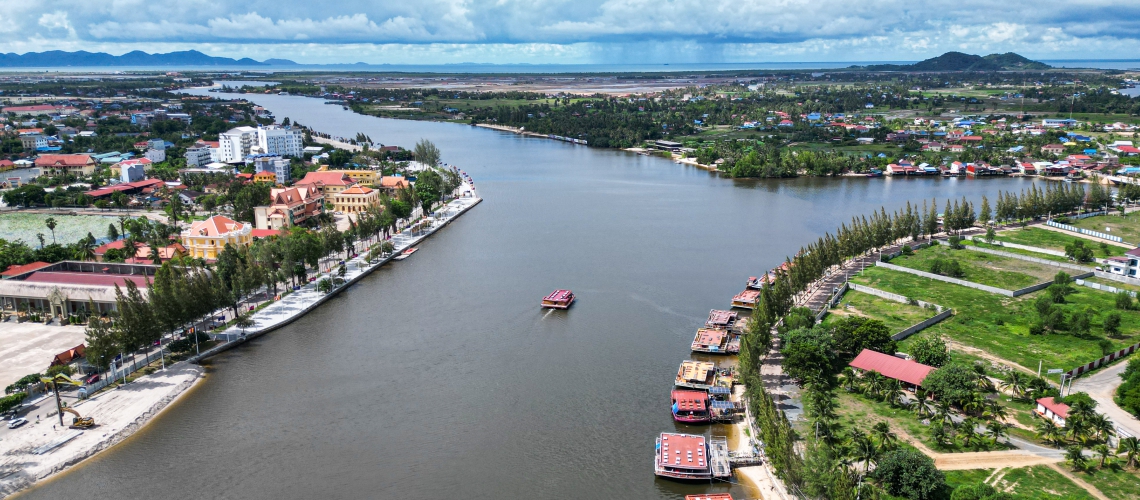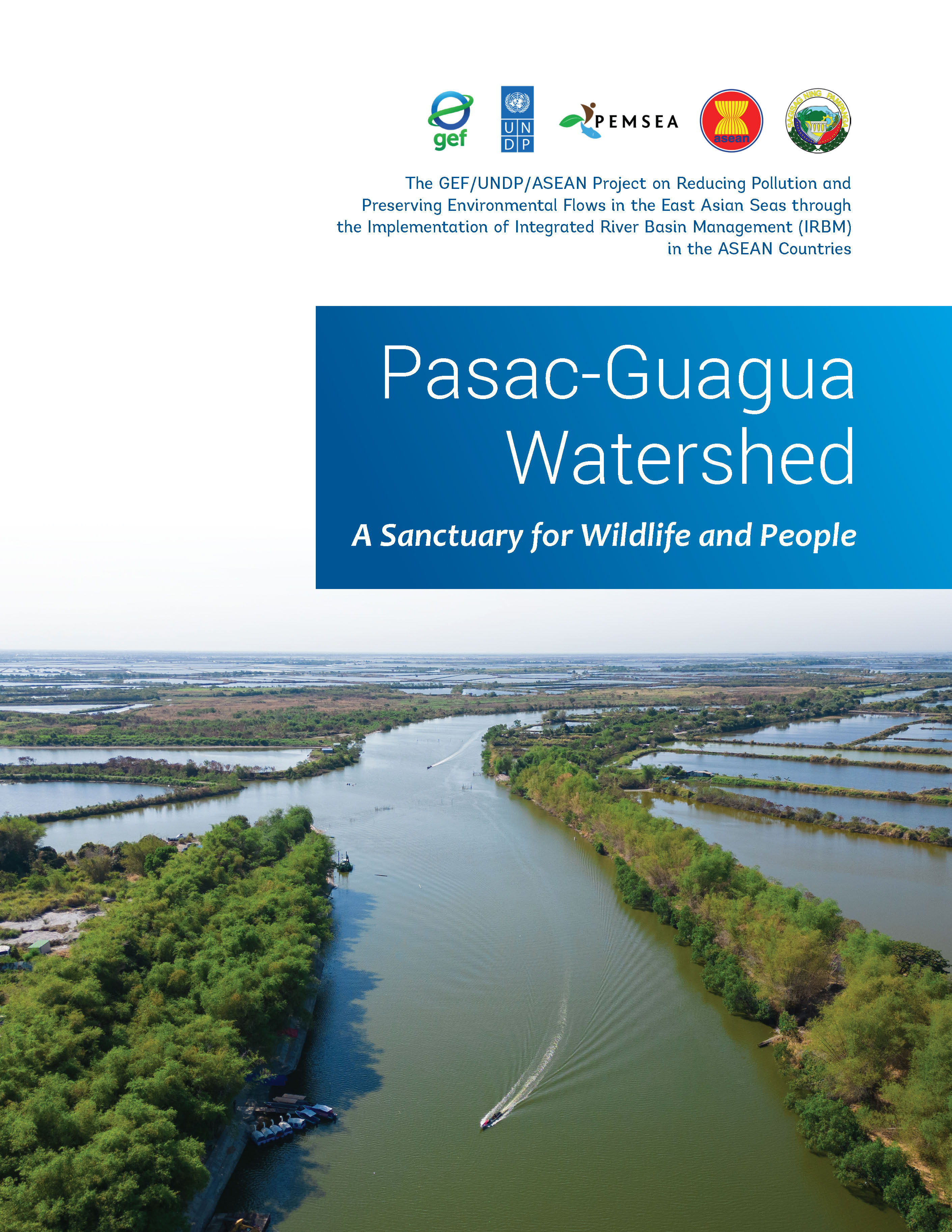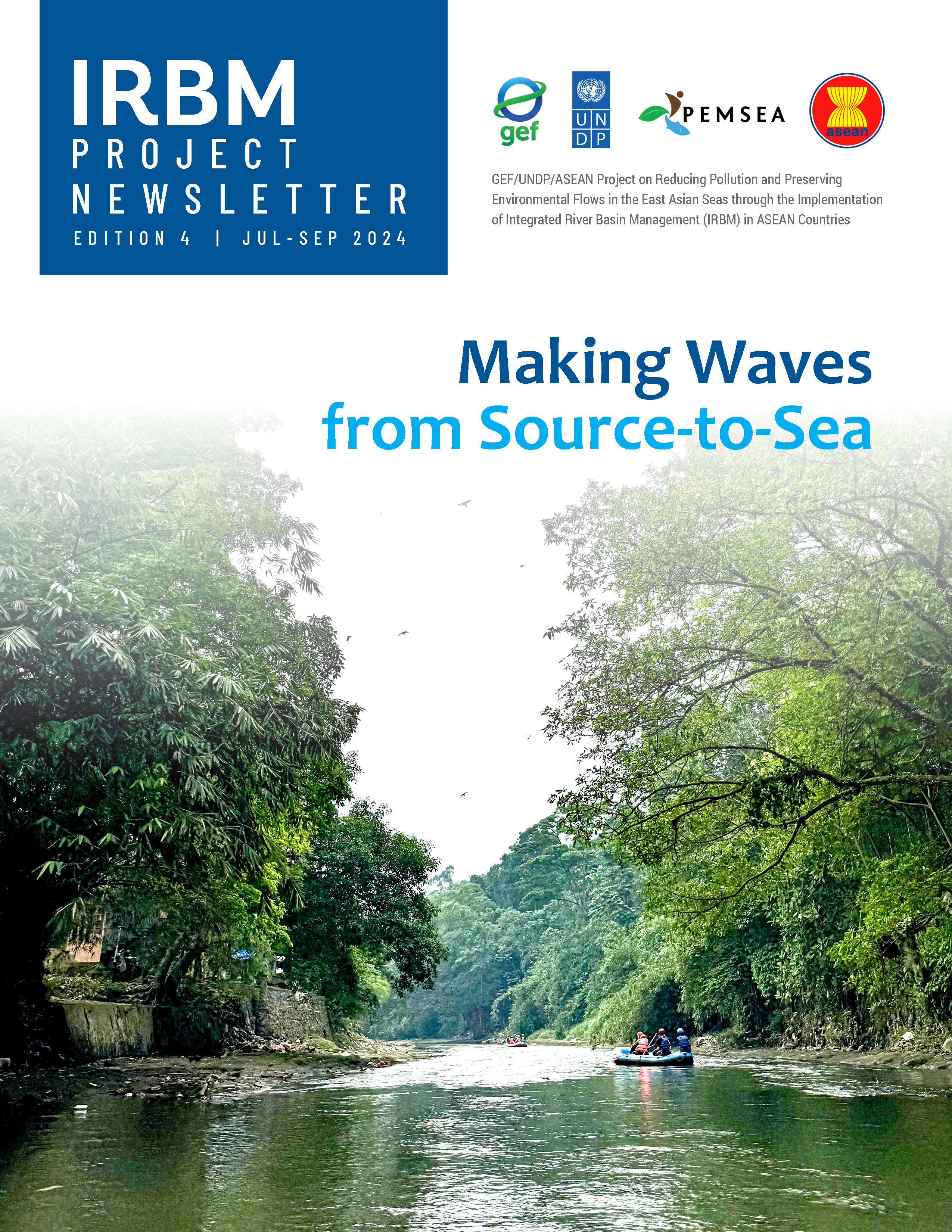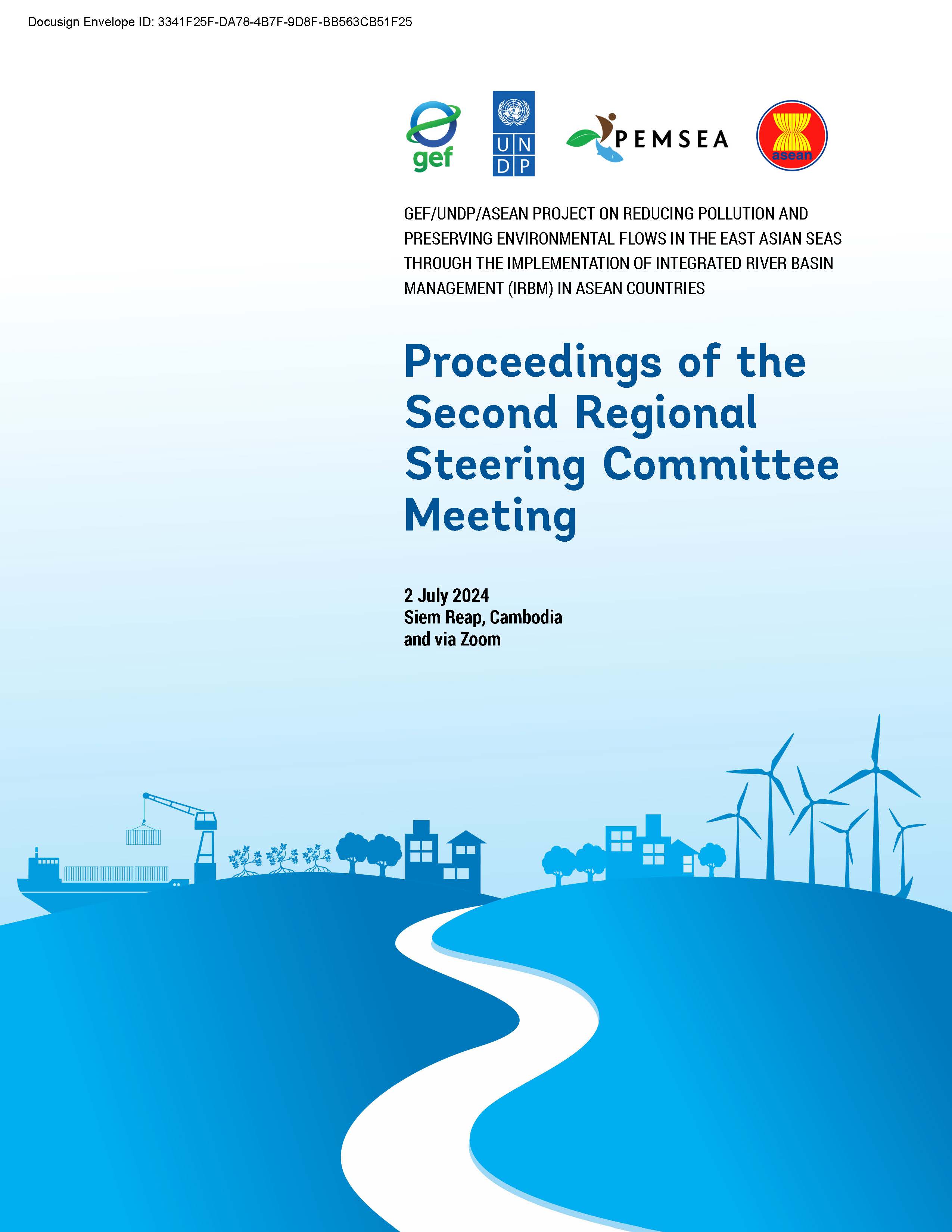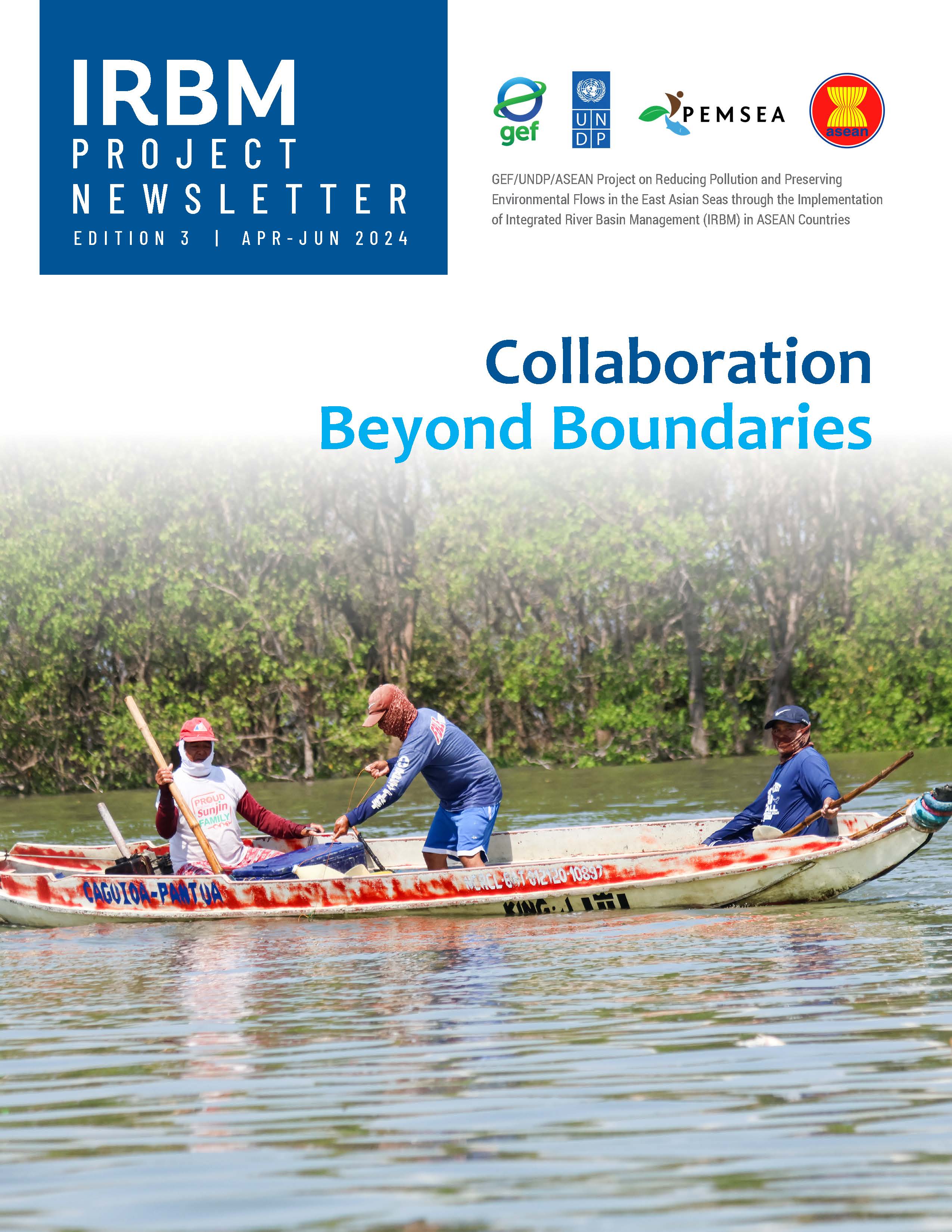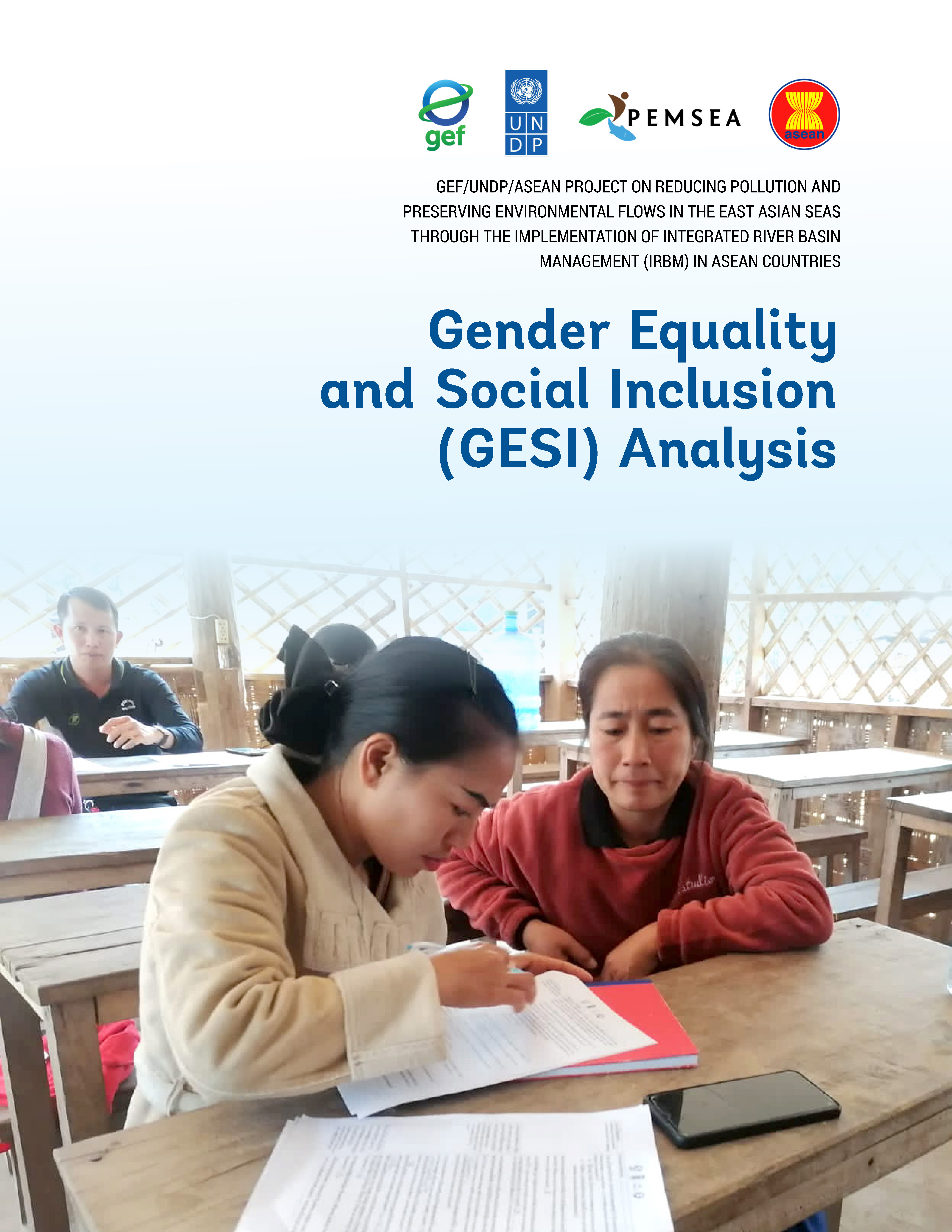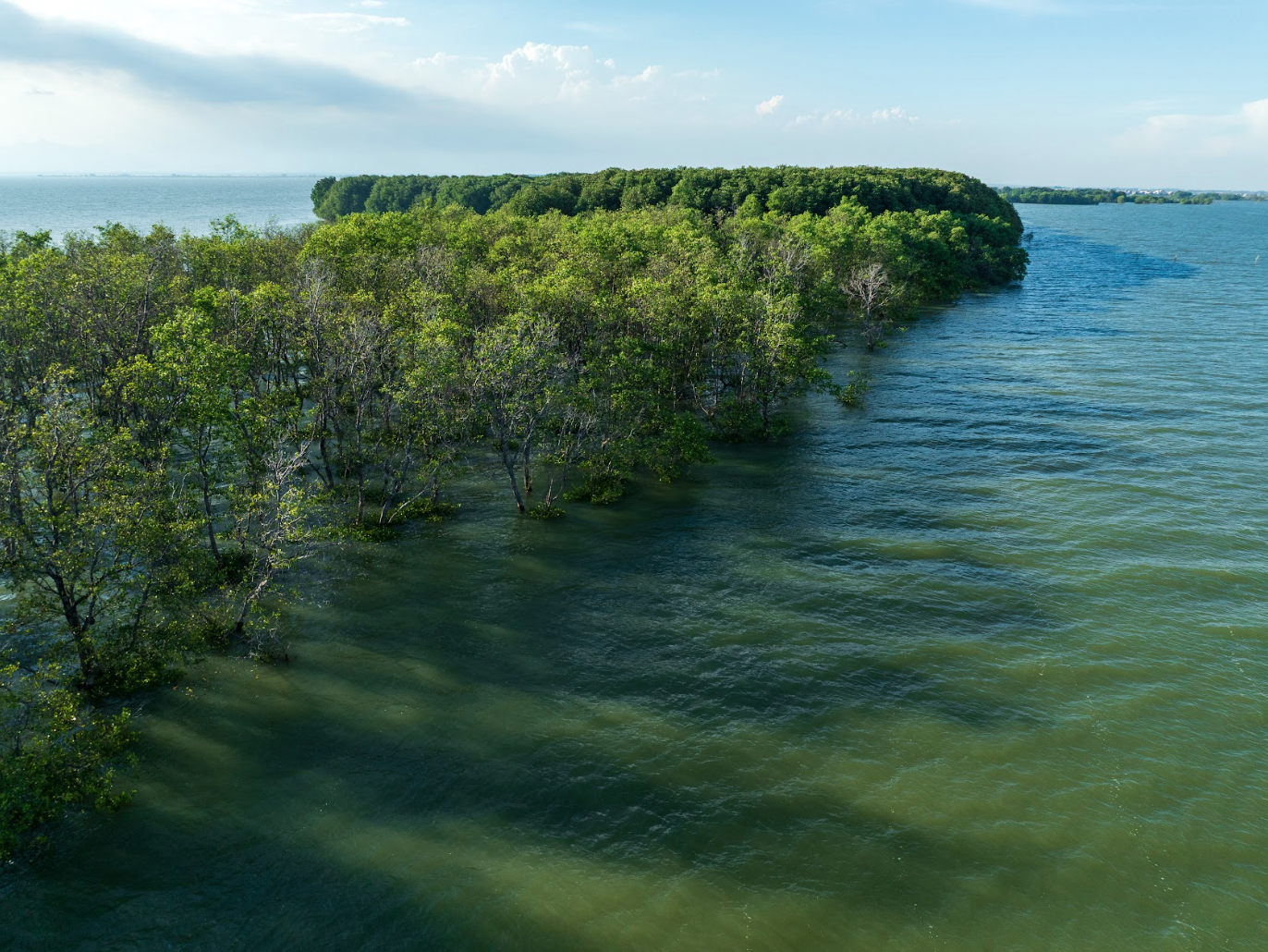
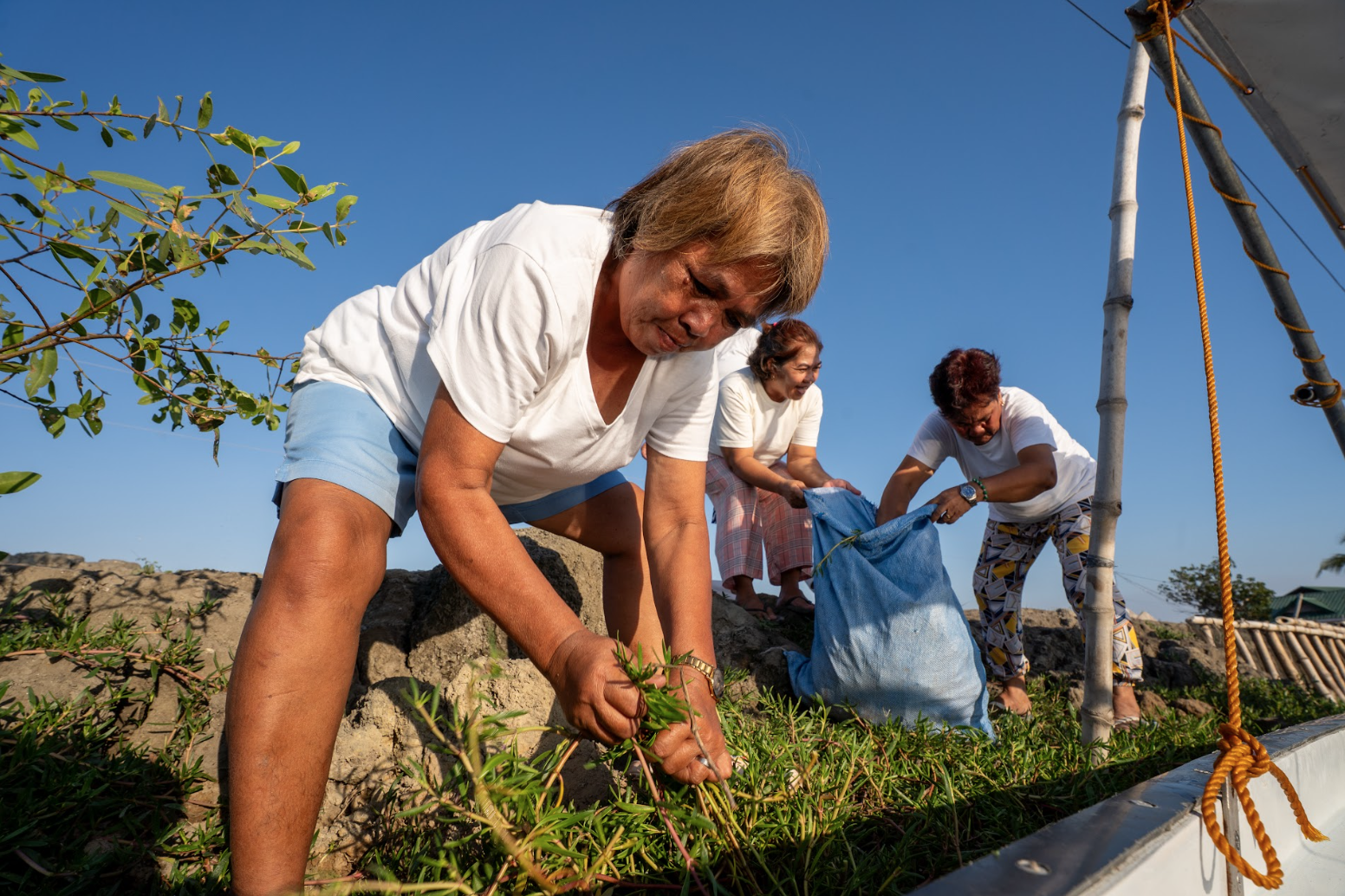
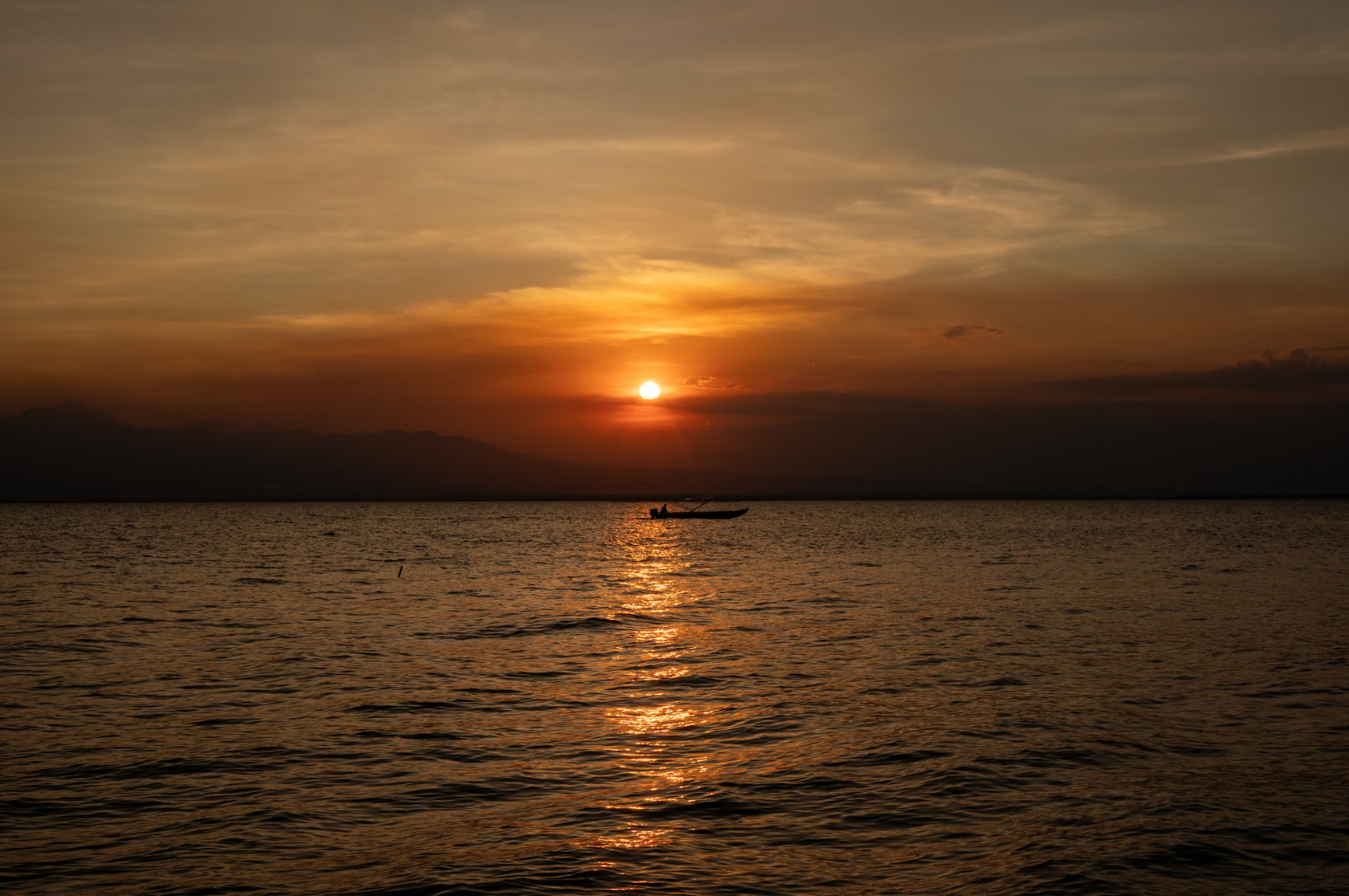
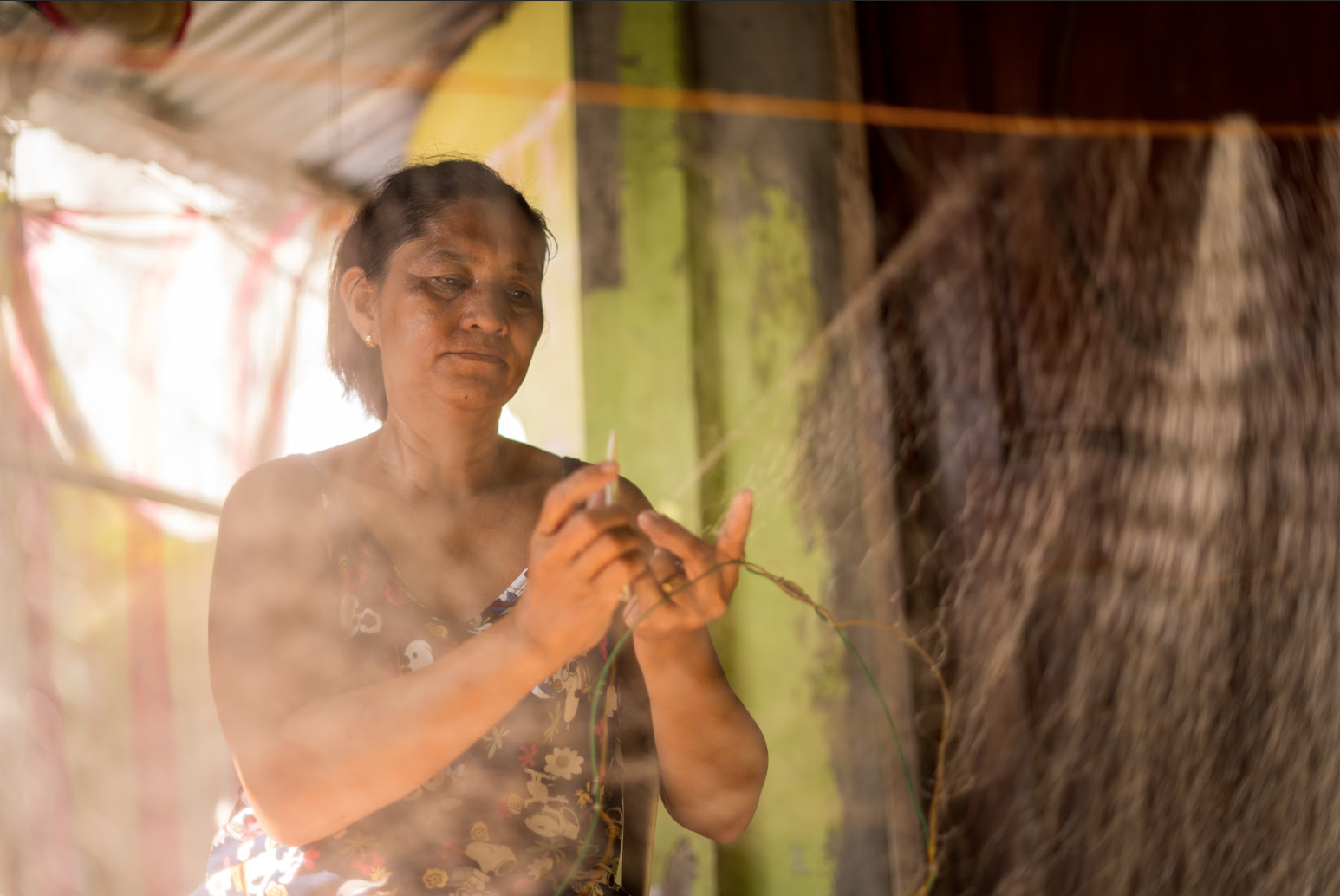
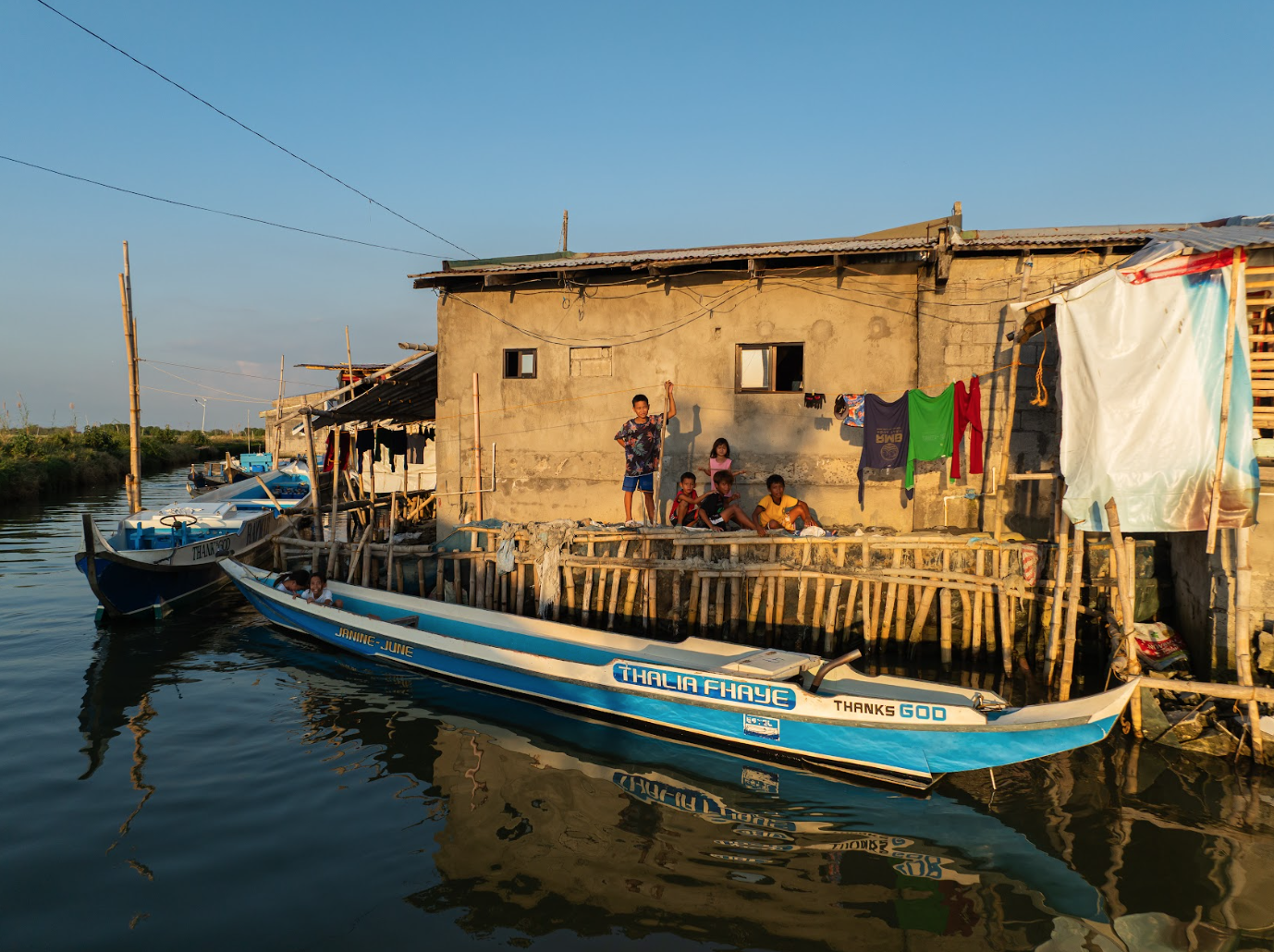
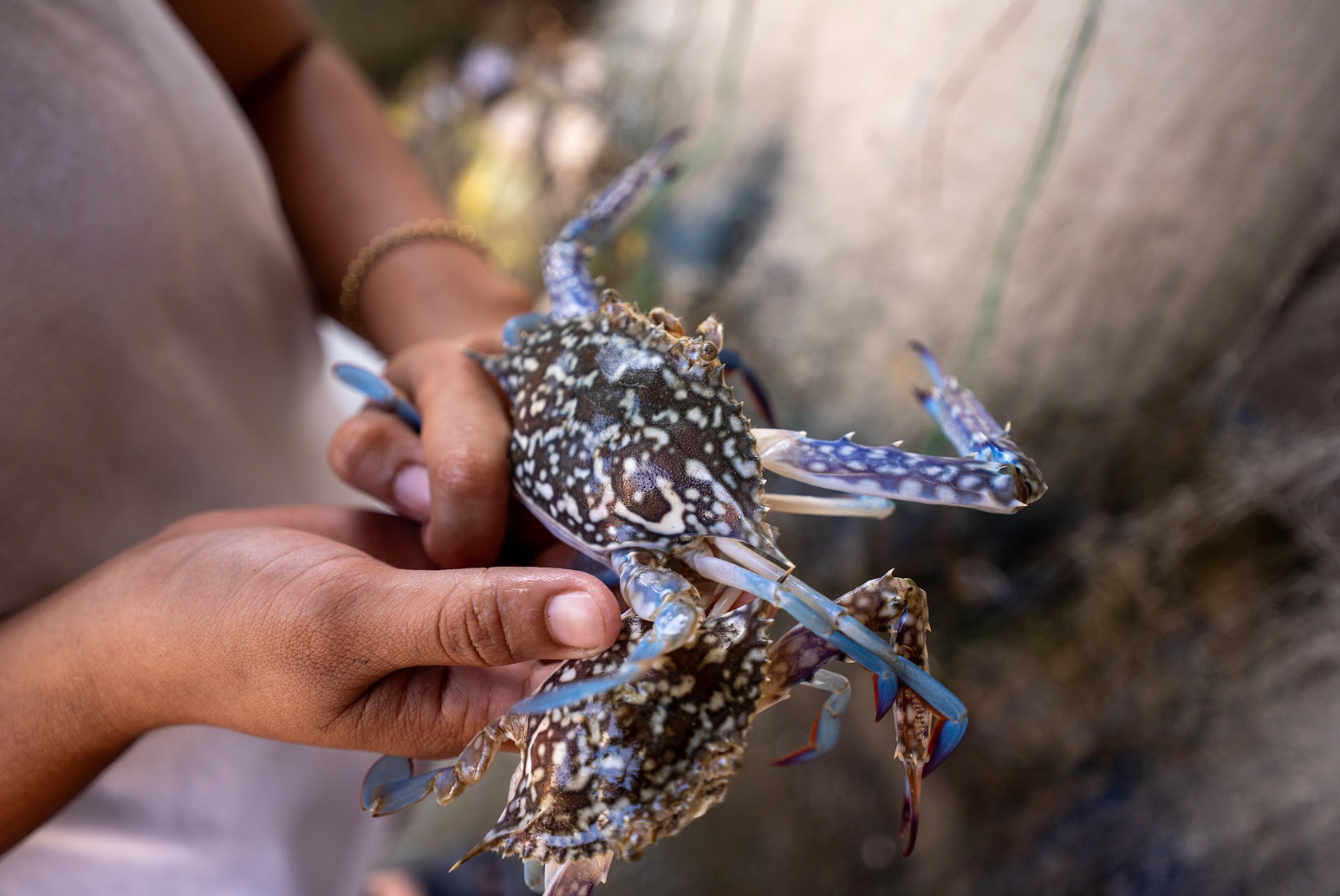
Breadcrumb
Integrated River Basin Management Project

Project Information
Implementing Agency: UNDP Bangkok Regional Hub
Executing Agency: PEMSEA Resource Facility
Funding Institution: Global Environment Facility
Participating ASEAN Member States: Cambodia, Indonesia, Lao PDR, Malaysia, Philippines and Vietnam
Project duration: 5 years (January 2023 to December 2027)
Project Grant: USD 8,479,123
Project Co-financing: USD 106,985,192
Spanning five years, the Integrated River Basin Management (IRBM) Project takes a comprehensive approach to protection and conservation, focusing on priority river basins in Cambodia, Indonesia, Lao PDR, Malaysia, the Philippines, and Vietnam. The project aims to reduce pollution, protect freshwater flows, and strengthen climate resilience.
This initiative influences four key large marine ecosystems—the Bay of Bengal, South China Sea, Gulf of Thailand, and Indonesian Sea—since the selected river basins in these countries drain into them. The project acknowledges the vital connection between river health, the well-being of marine environments, and the communities that rely on the resources that these critical bodies of water support.
The IRBM Project is supported by the Global Environment Facility (GEF), implemented by the United Nations Development Programme (UNDP) and executed by Partnerships in Environmental Management for the Seas of Asia (PEMSEA) Resource Facility, in collaboration with ASEAN.
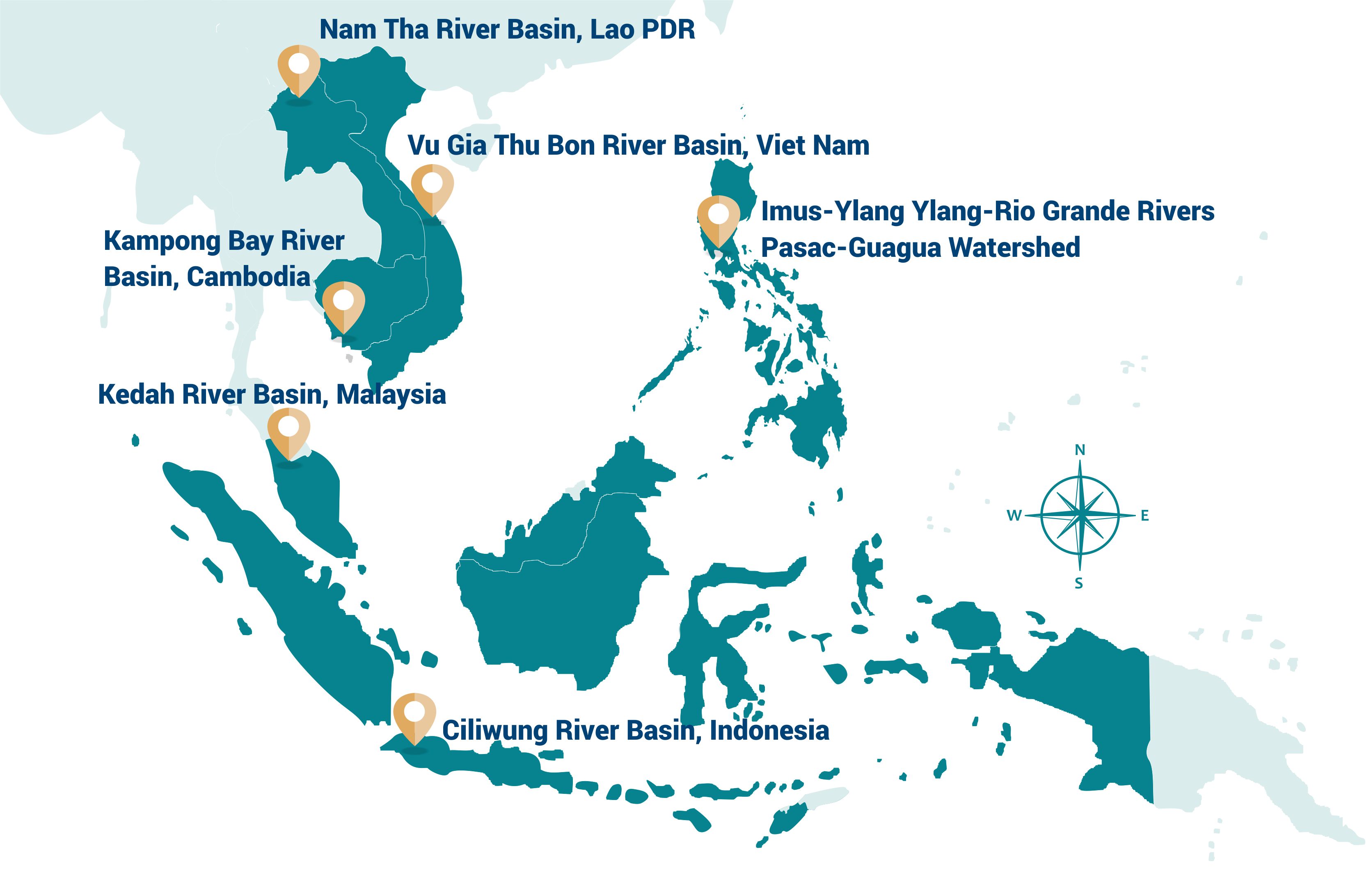
This graphic is not drawn to scale and is provided for illustration purposes only.
Project Goal
To establish functional IRBM mechanisms in the priority river basins of six ASEAN Member States to reduce pollution, sustain freshwater flows, and enhance resilience to climate change vulnerabilities
To achieve this goal, the project employs a solution-oriented approach that includes:
- Strengthening understanding of Source-to-Sea governance, socioeconomic and ecological conditions, while identifying gaps and needs in the seven priority river basins and their associated coastal areas
- Implementing pilot projects that deliver practical, on-the-ground solutions to address key issues, using tested models designed for replication and scaling up
- Facilitating hands-on training, capacity-building programs, and knowledge-sharing activities to support participatory planning and the development of effective IRBM governance and management practices across the six ASEAN countries.
Project Components
PROJECT OUTCOME 1:
Improved understanding of the situation and challenges in the river basins and surrounding areas:
- State of River Basin Reports
PROJECT OUTCOME 2:
Improved Source-to-Sea management demonstrated in the IRBM Pilot Projects:
- Feasibility studies, financial analyses, public consultations for preferred options for addressing IRBM challenges and formalizing the commitments to implement the pilot projects
IRBM governance mechanism and instruments refined:
- Good practices in IRBM governance and management
- Analysis of IRBM policies, strategies, laws, economic and financial instruments and partnership arrangements
- IRBM strategies and action plans
PROJECT OUTCOME 3:
Improved IRBM knowledge management and enabling capacities:
- Technical guide for a harmonized set of governance and management indicators
- Water quality monitoring and reporting
- Capacity building and skills on IRBM development and management
- Regional IRBM knowledge and communication management platform
- Regional and global forums, learning exchanges and networking
Project level monitoring and evaluation:
- Annual Project Implementation Review
- Independent mid-term and final evaluations
Project Publications
-
IRBM Stories - Pasac-Guagua Watershed: A Sanctuary for Wildlife and People
Located in the central region of northern Philippines, the Pasac -Guagua Watershed is a critical source of water and livelihood that supports 152 villages within the watershed. It is one of the major river systems that drain to Manila Bay, considered the main harbor of the country that is connected to a larger marine ecosystem, that is, the South China Sea.
The Pasac-Guagua Watershed is also a biodiversity haven where a portion of it is an important migratory path for water birds. The protection and sustainable management of the watershed is essential not only for the communities and wildlife thriving in the area for coastal and marine ecosystems connected to the river.
-
Integrated River Basin Management Project Newsletter - Edition 4
“Making Waves from Source to Sea” is the fourth edition of the Integrated River Basin Management Project’s newsletter, which highlights the different levels of key activities and milestones for the second year of the Project across the region. From the IRBM Project’s participation at the recently concluded 10th Biennial International Water Conference in Uruguay, to regional gender and social inclusion workshop in Indonesia, and river basin level consultation with indigenous leaders and other stakeholders — the IRBM Project is gaining more momentum to ensure impactful results in each site.
-
IRBM: Proceedings of the Second Regional Steering Committee Meeting
The Second Regional Steering Committee (RSC) meeting of the GEF/UNDP/ASEAN Project
on Reducing Pollution and Preserving Environmental Flows in the East Asian Seas through
the Implementation of Integrated River Basin Management (IRBM) in ASEAN Countries was
organized back-to-back with the 24th Meeting of the ASEAN Working Group on Water Resources
Management (AWGWRM) on 2 July 2024 through a hybrid format, i.e., in-person at Bayon Era
Hotel in Siem Reap, Cambodia and online via Zoom.
Hosted by the Royal Government of Cambodia through the Ministry of Environment (MOE),
the meeting was co-chaired by Mr. Oudomsack Philavong, Chair of the ASEAN Working Group
on Water Resources Management (AWGWRM) and Mr. Gerd Trogemann, Manager of United
Nations Development Programme-Bangkok Regional Hub of Asia and the Pacific (UNDP-BRH).
The meeting was attended by the National Focal Points (NFPs) of the AWGWRM from the
ten (10) ASEAN Member States (AMS), i.e., Brunei Darussalam, Cambodia, Indonesia, Lao
PDR, Malaysia, Philippines, Singapore, Thailand and Viet Nam, the ASEAN Secretariat (ASEC),
the East Asian Seas Executive Committee (EAS EC) and UNDP-BRH. The Regional Project
Management Unit (RPMU), hosted by PEMSEA Resource Facility (PRF) and MOE Cambodia
served as Secretariat to the RSC meeting. -
Integrated River Basin Management Project Newsletter - Edition 3
"Collaboration Beyond Boundaries" is the third edition of the Integrated River Basin Management Project, which highlights the coming together of governments and partners from ASEAN member states for the regional workshop on the State of River Basin and the 2nd Regional Steering Committee Meeting. Cooperation among national and local partners continue to drive the implementation of the Project in four priority river basins while the remaining three are gearing for implementation in the second half of 2024.
-
IRBM: GESI Analysis Report
Envisioned to guide in mainstreaming gender equality and social inclusion (GESI) in IRBM Project implementation, the report provides information and perspectives on the GESI context (or gender and social similarities and differences) in the participating river basins in the ASEAN region, including the gendered impact of development challenges such as water scarcity and pollution, waste management, disasters, climate change, etc. as experienced by women, men and vulnerable populations living in and around the project sites. The report also suggests ways forward to enhance and mainstream GESI into work plans and budgets at the river basin level, a process that will be supported by the project.
Pagination
Do you want to learn more about the IRBM Project?
